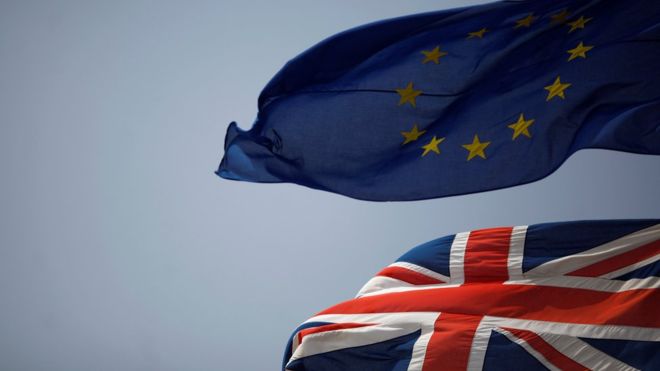The government is facing a legal battle over whether the UK stays inside the single market after it has left the EU, the BBC has learned.
Lawyers say uncertainty over the UK’s European Economic Area membership means ministers could be stopped from taking Britain out of the single market.
They will argue the UK will not leave the EEA automatically when it leaves the EU and Parliament should decide.
But the government said EEA membership ends when the UK leaves the EU.
The single market allows the tariff-free movement of goods, services, money and people within the EU.
The EEA, set up in the 1990s, extends those benefits to some non-EU members like Norway, Iceland and Liechtenstein.
Non-EU members are outside the Common Agricultural Policy and customs union, but get barrier free trade with the single market in return for paying into some EU budgets and accepting the free movement of workers.
If the courts back the legal challenge and give Parliament the final say over EEA membership, then MPs could vote to ensure that Britain stays in the single market until a long-term trading relationship with the EU has been agreed.
‘Not automatic’
The pro-single market think tank British Influence is writing to Brexit Secretary David Davis to inform him that it will seek a formal judicial review of the government’s position.
The group warned that if the government did not get a clear legal opinion it could potentially end up acting outside the law.
All EU member states are in the European Economic Area and it had been assumed that when Britain leaves the EU it would automatically leave the EEA as well.
But some lawyers argue that leaving the EEA would not be automatic and would happen only if Britain formally withdraws by triggering Article 127 of the EEA agreement.
The legal question is focused on whether the UK is a member of the EEA in its own right or because it is a member of the EU.

